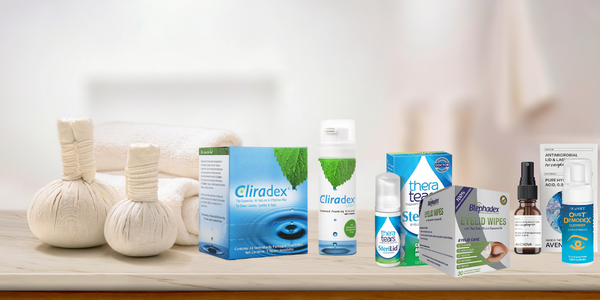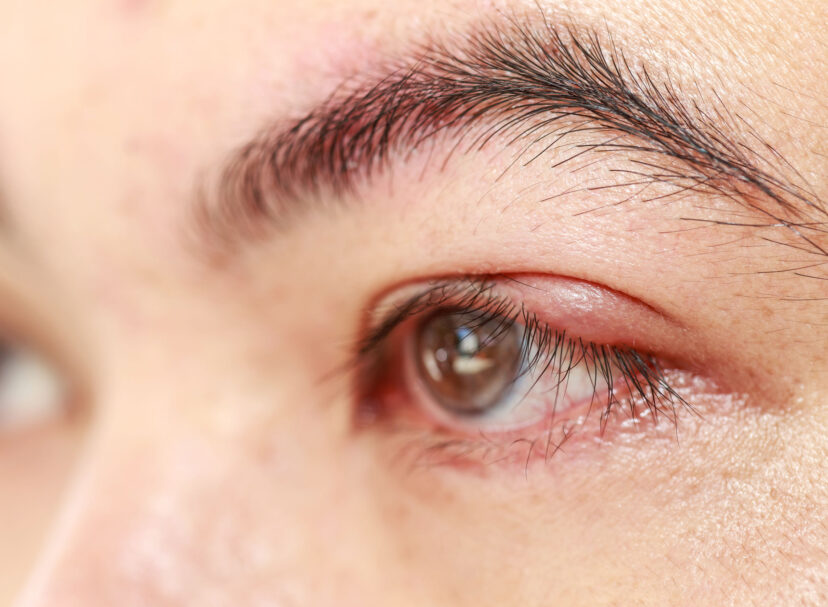Preventative care for your eyes can help to assure that they stay healthy and functional. While not all eye diseases or disorders are preventable, many are. Staying comfortable and seeing well throughout your life is much better than struggling with eye issues. After all, as Benjamin Franklin said, “an ounce of prevention is worth a pound of cure.”
Get Regular Eye Exams
The National Eye Institute (NEI) recommends that you have regular dilated eye exams. An eye doctor will dilate your pupils and look for common issues and early signs of diseases like glaucoma and macular degeneration. This is the only way that many eye issues are identified. The doctor will also be able to tell you if you need glasses or an updated prescription for glasses or contacts. (Source). During your exam, you will likely discuss the family history of eye diseases, a conversation that your doctor will use to screen for genetic risk factors. Like other health care check-ups, this should be part of your annual health care routine.
Get Enough Sleep for Eye Health

All the experts agree that without sufficient sleep you cannot be healthy. This applies to your eyes as much as to any other part of your body. While you sleep, the body, including your eyes, regenerates, rests, and heals. In order to keep your eyes healthy, as an adult, you need between 7 and 9 hours of sleep each night. Without that sleep, you face the risk of suffering a number of eye disorders, including dry eye, which is uncomfortable and may lead to complications including vision loss.
Blink Frequently
Staring contests are fun, but they are not good for your eyes. When you blink, your eyelids spread basal tears across the surface of your eyes which lubricate them and keep them from drying. A normal healthy person produces between 5 and 10 ounces of basal tears each day. (Source). Blinking not only refreshes your eye’s moisture, but it also keeps particulate matter from injuring the eye itself. Intentional blinking helps your eyes stay healthy.
Eat Right

They say that carrots are vision food and there is some truth to this. Some foods are really good for your eyes. According to WebMD these include anything with omega-3 fatty acids, zinc, vitamins C and E, leafy greens, oily fish, non-meat lean protein sources, citrus fruits and juices, oysters, and pork. A diet that focuses on nutrients and vitamins and is balanced encourages whole-body health, including reducing the risk of diabetes, which is often associated with blindness.
Don’t Look Too Closely at Screens
The eye experts will warn you to keep screens at least 16 inches away from your eyes. (Source). It is also important to take screen breaks. Resting your eyes for 20 seconds every 20 minutes will reduce the impact of being in front of a screen. (Source). Blinking frequently also helps with this. It is also not advised to use screens that emit blue light within a couple of hours of trying to sleep. Yes, in the 21st century we are all attached to our devices, but screen time is really causing an eye strain and fatigue epidemic that can lead to significant issues in individuals.
Protect Your Eyes from the Environment
Protective eyewear is a critical part of keeping your eyes healthy. Sunglasses that protect your eyes from UVA and UVB rays help to assure that they are not damaged by the sun, which can cause cataracts and macular degeneration. Lenses that are polarized reduce glare when driving or in highly reflective environments. Safety goggles when working or playing in environments that have potentially hazardous materials or other airborne threats prevent both eye injuries and irritation. Using goggles that are airtight and fit correctly when swimming will keep pollutants, irritants, and foreign objects out of your eyes. If you need eyeglasses for reading, they should be used routinely to prevent eye strain that might lead to further vision deterioration. The same is true for all vision issues – wear your corrective and protective lenses as your eyes depend on them.
Practice Good Eye Hygiene

You brush your teeth daily, so why wouldn’t you cleanse your eye area? Your eyes build up dirt and bacteria daily. And makeup and lotions should be removed every day. Your eyes are sensitive, so your choice for your daily eye care should be a product that is designed to gently cleanse the skin and your eyelashes, soothe irritation symptoms, and that is specially formulated to clean away Demodex mites. Gentle, targeted care goes a long way toward preventing eye health issues. Cliradex does the trick. It is a natural eyelid cleanser that is 100% vegan and gluten-free and will keep your eyelids and eyelashes clean.




